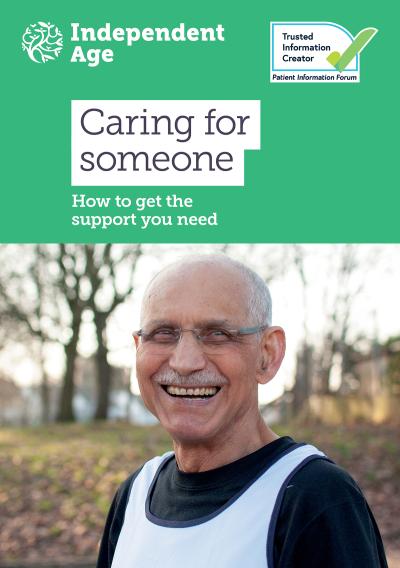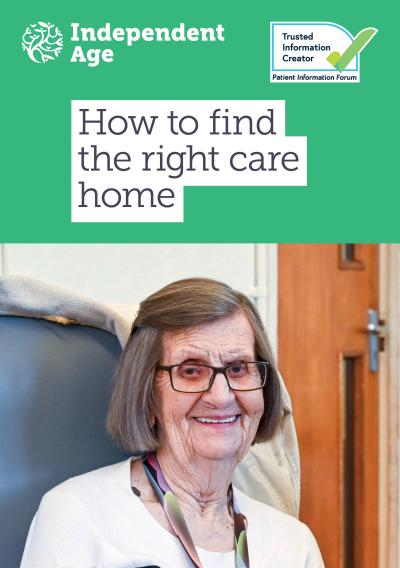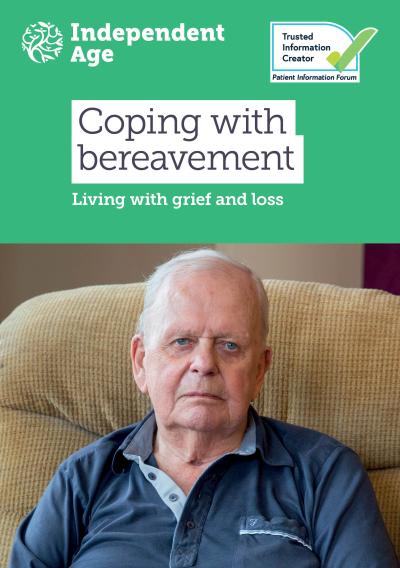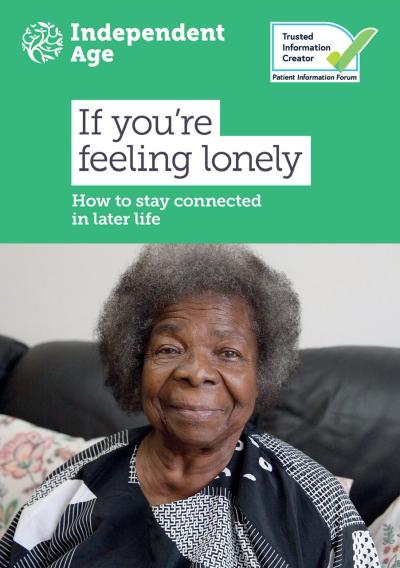Related publications

Caring for someone

How to find the right care home

Coping with bereavement

There may come a time when your caring role ends because, for example, the person you’re looking after needs more care than you can provide, or they have died. Whatever the reason, it’s a good idea to prepare for the future.
There are many reasons why you may not be able to continue looking after someone. They might need more support, or you may have your own health concerns. It’s understandable if you feel you can no longer provide care for any reason.
If you’re no longer willing or able to look after someone, tell the council as soon as possible. Ask the council to carry out a care needs assessment, also called an Adult Carer Support Plan in Scotland, or review the care and support plan for the person you're looking after. Remember to tell them if the situation is urgent. Our factsheet First steps in getting help with your care needs has more information.
Residential care might be the best option for the person you care for. But you could still have mixed feelings – relief that they'll be getting the level of care they need, but also guilt or sadness. Our guide How to find the right care home can help you choose one.
If you still want to be involved in caring for your relative or friend, speak to the care home staff about how you can work together. If you’re still providing care, you may be entitled to some benefits and carers’ rights at work.
Find out if the care home has a group for relatives and carers you can join. This may let you be involved in life at the care home, and give you the opportunity to talk about your feelings and the changes you're going through. Get in touch with Care Rights UK for more information and support.
Grief is a complex and very personal experience. If the person you were caring for had been ill for some time, you may feel some relief. But you may also feel alone and isolated, especially if your caring role meant you lost touch with friends. It may help to talk to other people who knew the person you cared for, so you can support each other and talk about them.
As well as coping with your loss, you may have to deal with practicalities, such as organising a funeral and dealing with the estate of the person who died. Our factsheet What to do after a death has more information.
Specialist bereavement organisations such as Cruse and Cruse Scotland can offer advice, counselling and the details of local bereavement groups. You could also talk to your GP. Our guide Coping with bereavement can help you to look after yourself.
If you’re claiming a carers' benefit, or you have an underlying entitlement to it, you must tell the Carer's Allowance Unit for Carer's Allowance or Social Security Scotland for Carer Support Payment if your circumstances have changed in any way that’s likely to affect your benefits.
You can continue getting a carers' benefit for up to eight weeks after a death.
If you’re no longer caring for someone, your financial position may have changed. You’ll need to make sure you’re claiming the right benefits. Call our Helpline to arrange a benefits check or try our benefits calculator.
Caring may have been a big part of your life and it can take time to adjust. You may find yourself with lots of time on your hands but feel unsure what to do with it. Some people feel unwell for a while as exhaustion catches up with them and you may need a rest. You can still get support from carers’ organisations even if your caring role has come to an end.
When you’re ready, you might want to start connecting with other people again and readjusting to not being a carer. Our guide If you’re feeling lonely has suggestions for ways to meet people and things you could try, such as taking up a new hobby.
You may have built up expert knowledge during your time as a carer and want to continue using your skills and experience. If you’re interested in volunteering, you can:

You can find details of local carers’ organisations on the Carers UK or Carers Trust websites.